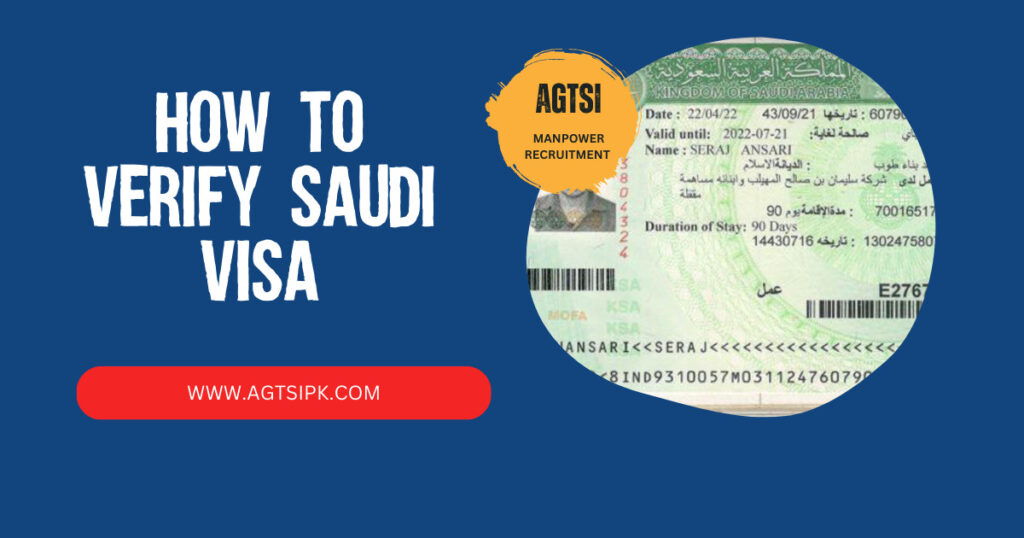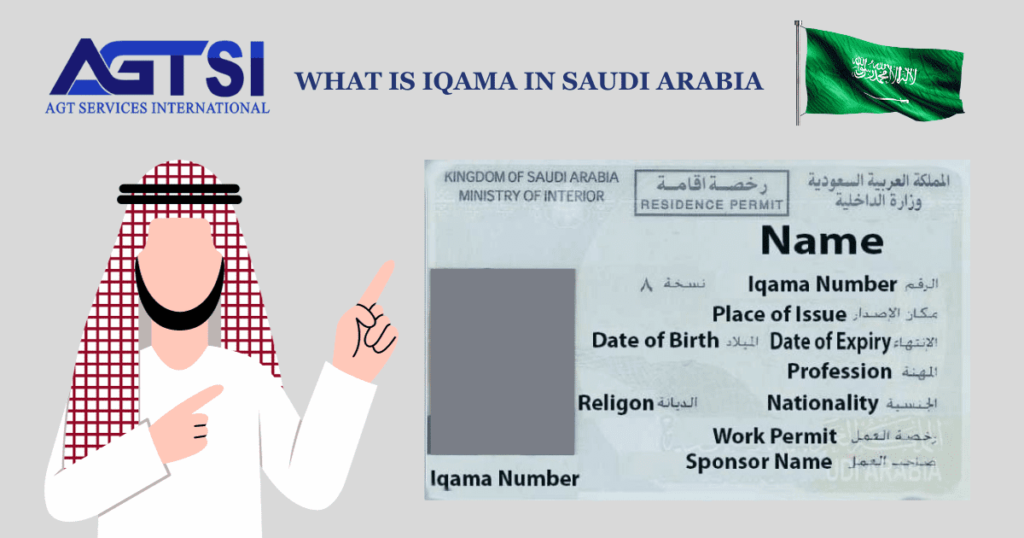Introduction
Acing a job interview is crucial for anyone looking to secure opportunities in Saudi Arabia’s competitive job market. As a longstanding player in the industry, AGT Service International (AGTSI) has been a trusted manpower recruitment agency providing skilled workforce solutions to Saudi Arabia’s companies for the past 20 years. Our CEO, Malik Faisal Arfat, brings over 25 years of extensive experience in human resources, making him a seasoned expert in the field. In this comprehensive guide, written by our CEO, we’ll delve into the key strategies and tips for making a lasting impression on Saudi employers during an interview.
What makes acing your job interview with Saudi employers so crucial?
Securing a job interview with a Saudi employer is just the first step; making a positive impression is paramount. Saudi employers value professionalism, cultural awareness, and strong communication skills. Acing your interview demonstrates your readiness to succeed in their work environment and contributes to your professional success.
Interview Scenarios
Job interviews with Saudi employers can take different forms:
1. Interviews by Saudi HR Delegations through Recruitment Agencies (Trade Testing Services)
These interviews may involve Saudi HR delegations visiting other countries or conducting interviews remotely through recruitment agencies. Trade testing services are often part of this process to assess candidates’ skills and qualifications accurately.
2. Remote or Online Interviews
In the context of Saudi Arabia, interviews, especially in sectors like IT, digital marketing, and software development, remote or online interviews have become a significant part of the hiring process. Due to travel restrictions or the nature of specific roles where physical trade testing is not necessary, many Saudi employers opt for virtual interviews conducted through platforms like Skype or Zoom.
This trend allows international job candidates to interview for positions in their country without the need for extensive travel or physical presence in the initial stages of the hiring process. Therefore, being well-prepared for remote interviews is essential for job seekers targeting Saudi Arabia interviews, as it has become a standard practice in the region’s evolving job market.
Preparation Before the Interview
Here are 11 essential things to do before your job interview with a Saudi employer:
1. Research the Company
Research the Saudi company involves going beyond just browsing the company’s website. Look into recent news articles, press releases, and social media updates to get a comprehensive understanding of the company’s culture, values, goals, and any recent achievements or challenges. This information not only helps job seekers answer questions during the interview but also enables job candidates to match their responses with the Saudi company’s objectives, showing their genuine interest and expectations.
2. Research Your Interviewer
If a job seeker outside the Saudi kingdom knows the Saudi interviewer’s name beforehand, take some time to research them. Look for the Saudi employer’s professional background, any publications or presentations they’ve been involved in, their career progression within the Suadi hiring company, and any common interests or connections you may share. Explore Your Saudi Interviewer information can help job seekers establish a connection and shape their communication style during the interview.
3. Prepare Thoughtful Questions
Beyond asking generic questions, try to formulate insightful and specific questions that demonstrate the job seeker’s knowledge of the company and your genuine curiosity about the role. For example, inquire about the team dynamics, opportunities for professional development, upcoming projects, or the company’s perspective on specific industry trends. Asking thoughtful questions not only shows job seeker engagement but also helps you consider if the Saudi company is the right fit for you.
4. Conduct a Mock Interview
Seek assistance from a friend, family member, or mentor to simulate a practice interview. Engage in mock interviews focusing on industry-specific questions relevant to your role and expertise. Be mindful of your tone, body language, and the coherence of your answers. Mock interviews are invaluable for refining your answers, boosting your confidence, and identifying areas for improvement before the actual interview.
5. Print Physical Copies of Your Resume
While most interviews are conducted virtually, it’s still important to have physical copies of your resume on hand. Print several copies on professional-grade paper and ensure they are neatly organized in a folder or portfolio. Presenting a hard copy of your resume upon request showcases your readiness and meticulousness.
6. Eat a Nutritious Meal
On the day of your interview, prioritize eating a balanced and energizing meal. Opt for nourishing options that sustain energy and mental clarity, like whole grains, lean proteins, and fresh fruits and vegetables. Steer clear of heavy or oily foods that could lead to discomfort or sluggishness throughout your interview. Staying hydrated is also essential for maintaining alertness and clarity of mind.
7. Ensure Professional Attire
Dressing appropriately for the interview is essential, especially in a cultural context like Saudi Arabia. Research the company’s dress code and stick to it, opting for traditional and professional attire. For men, a suit with a tie or a cultural dress is appropriate. Women should choose fair and business-appropriate clothing, such as a well-fitted suit or a conservative dress with minimal accessories. Pay attention to grooming, hygiene, and overall presentation to make a positive impression.
8. Prepare Thank-You Notes
Writing personalized thank-you notes or emails after the interview is a courteous gesture that can leave a lasting impact. Show appreciation for the chance to interview, reaffirm your enthusiasm for the role, and touch upon a particular aspect from the interview that left a strong impression on you. Sending thank-you notes shows professionalism, attention to detail, and appreciation for the interviewer’s time and consideration.
9. Plan Your Route
Get acquainted with the interview venue by learning the precise address, exploring parking choices, understanding public transportation routes, and estimating travel duration. Plan to arrive at least 15-30 minutes early to account for any unexpected delays. Use navigation apps or GPS tools to monitor traffic conditions and choose the most efficient route. Arriving on time shows reliability, respect for others’ time, and a proactive approach.
10. Turn Off Cell Phone
Before entering the interview venue, ensure your cell phone is turned off or switched to silent mode. Silence notifications, alarms, or calls during the interview to avoid distractions or interruptions. Keep your focus on the conversation and the interviewer, and showcase your qualifications and suitability for the role.
11. Familiarize with Interview Formats
Be prepared for various interview formats that Saudi employers may use. Different interview formats could include traditional one-on-one interviews, panel interviews with multiple interviewers, behavioural interviews focusing on past experiences and scenarios, technical assessments, or even virtual interviews conducted via video conferencing platforms. Understand the distinctions of each format and adjust job seekers’ approaches accordingly to effectively communicate your skills, accomplishments, and readiness for the role.
During the Interview: Tips for Performing Your Best
Maximize your performance during the interview with these tips:
1. Arrive Early
Punctuality is essential in Saudi Arabia as it reflects respect for the interviewer’s time and commitment. Arriving early, at least 10 to 15 minutes before the scheduled interview time, allows job applicants to compose themselves, review any last-minute notes, and show their professionalism.
2. Dress Professionally
Saudi cultural standards prescribe humility and formality in clothing, especially in professional settings like job interviews. For men, clothing often means wearing a suit or traditional national dress with appropriate grooming. Women should opt for conservative clothing, such as a modest blouse and skirt or a professional abaya. Sticking to these dress codes shows respect for local customs and increases potential employees’ chances of making a positive impression on the Saudi HRM team.
3. Bring Extra Copies
Having extra copies of your CV, work samples, and business cards showcases your preparedness and organization. Have Additional Copies allows potential employees to provide documents, if needed, during the interview, demonstrating their qualifications and readiness for the role.
4. Follow Interviewer’s Lead
In Saudi Arabia, the interviewers typically take the lead in creating greetings and handshakes. Follow the hiring manager’s cues and wait for them to extend their hand for a handshake before responding. Wait for their handshake; this respectful approach matches with local customs and manners.
5. Maintain Eye Contact
Eye contact is a sign of confidence, attentiveness, and sincerity in communication. During the interview, make sure to maintain eye contact with the interviewers. Keeping eye contact shows that you are engaged, focused, and confident in your responses.
6. Answer Questions Confidently
Be prepared to answer a wide range of questions, both personal and technical, with confidence. When discussing your experiences, use the STAR method (Situation, Task, Action, Result) to provide specific examples and showcase your problem-solving skills and achievements.
7. Highlight Education and Skills
Highlight your relevant education, skills, and any international experience relevant to the job role. This will help the interviewers understand the job seeker’s qualifications and how they align with the company’s requirements and expectations.
8. Express Enthusiasm
Verbally express your enthusiasm and interest in the opportunity and the company. Showcasing your excitement demonstrates your motivation and dedication to contributing positively to the organization.
9. Ask Informed Questions
Demonstrate your interest and engagement by asking insightful questions about the role, company culture, growth opportunities, and any other relevant topics. This shows that you have done your research and are genuinely interested in the position.
10. Demonstrate Cultural Sensitivity
Adapt to local customs and norms during the interview to demonstrate cultural sensitivity. Show respect for Saudi traditions, avoid controversial topics, and maintain a professional and respectful demeanor throughout the interview process.
11. Pay Attention to All Interviewers
Acknowledge and engage with all interviewers, including those who may be silent observers or decision-makers. Be attentive to everyone’s questions and comments, as each person’s input is valuable in assessing your suitability for the role.
Preparing for a Successful Saudi Arabia Interview on Skype
1. Make sure you have Skype installed
Ensure that you have Skype installed on your computer well before the interview to avoid any last-minute technical issues. It’s essential to have the program ready and updated, along with your login credentials, to prevent delays and show preparedness.
2. Dress professionally
Even in a virtual environment, maintain a professional appearance as if you were physically present for the interview. This showcases your commitment and regard for the opportunity, regardless of whether the interviewer can view your complete attire.
3. Use an appropriate background
Choose a suitable background for your Skype interview, either by blurring the background or ensuring it’s professional and free of distractions. Organize your space to create a neat and tidy backdrop that reflects your professionalism.
4. Face the light
Set up your computer so that you are well-lit during the interview. Natural light or a desk lamp positioned behind your computer and focused on you can enhance visibility and convey a positive impression.
5. Sit at a proper distance
Maintain a proper distance between yourself and the computer camera, ensuring that your face, shoulders, and upper chest are visible. Center yourself in the frame to maintain a professional appearance and engage effectively.
6. Arrange the Skype windows
Adjust the Skype window settings to ensure that you can maintain eye contact with the interviewer. Position the video windows appropriately to create a more natural conversational experience.
7. Test your microphone and video
Conduct a test run of your microphone and video settings to ensure they are functioning correctly. Clear audio and a centered, clean video feed contribute to a smooth and professional interview.
8. Take the interview in a quiet location
Choose a quiet and interruption-free location for your Skype interview to minimize background noise and distractions. Notify individuals in your vicinity about the interview to prevent any potential disruptions.
9. Log in early
Aim to log in to the Skype interview a few minutes early to demonstrate punctuality and readiness. Being prepared and waiting in the meeting room before the interviewer joins shows your enthusiasm for the role.
10. Show engagement in the conversation
Actively engage in the conversation by asking questions, nodding, maintaining eye contact, and acknowledging what the interviewer says. This interaction demonstrates your interest and communication skills.
11. Take turns speaking
Practice active listening and avoid interrupting the interviewer. Maintain a conversational flow by allowing each party to speak without interruptions, enhancing the overall clarity of communication.
12. Prepare for the interview
Prioritize preparation by practicing interview questions, reviewing your portfolio, researching the company and role, and having questions ready. Conducting a test run with a friend can also help familiarize you with the Skype platform.
13. Maintain good posture
Sit up straight with good posture during the interview to convey professionalism and confidence. Avoid slouching or leaning back excessively, as it may affect how you are perceived.
14. Share your screen
Utilize the screen-sharing feature on Skype to showcase relevant work, such as portfolios or projects, directly to the interviewer. Prepare these materials in advance to streamline the process and demonstrate preparedness.
15. Record your interview
Seek permission to record the interview for future reference. Reviewing the interview recording can provide valuable insights for improvement and preparation for subsequent interviews or follow-up discussions.
Final Thoughts
Successfully acing your job interview with Saudi employers requires thorough preparation, cultural awareness, and effective communication. By following the strategies outlined in this guide, you can position yourself as a strong candidate and increase your chances of securing your desired role in Saudi Arabia’s dynamic job market.




















